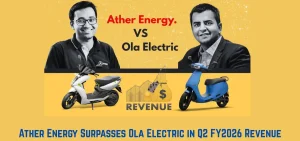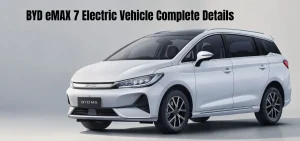The rise of foreign players in India’s EV sector has taken a dramatic new turn, and the numbers reveal a story few expected. Chinese EV Makers Grab 33% Indian EV Market in what experts call one of the fastest disruptions in the nation’s automotive history. From selling zero BEVs in 2019 to 57,260 units by October 2025, China-backed brands have not only entered the arena—they’ve shaken it. This explosive growth is challenging long-standing domestic giants like Tata Motors and Mahindra & Mahindra, leaving readers to wonder: What sparked this sudden surge, and what does it mean for India’s EV future?
A Rapid Shift in Market Dynamics
The Indian EV market is now a blend of strong domestic brands and aggressively expanding global ones. While Chinese-owned companies captured one-third of the market by October 2025, Indian manufacturers still hold the lead, collectively selling 101,724 BEVs this year. Their dominance is supported by localization, affordability-driven strategies, and alignment with government schemes like FAME-II and PLI, which encourage domestic manufacturing.
Yet, the rapid growth of Chinese-backed firms is undeniable — reshaping customer expectations and accelerating technological evolution within India’s EV sector.
Why Chinese EVs Are Rising Fast?
Several factors explain the surge in demand for China-backed EVs:
- Advanced technology and premium features
- Longer battery ranges and better efficiency
- Fast product development cycles
- Competitive pricing backed by global scale
These features strongly appeal to Indian buyers who are increasingly looking for reliability and high-performing EVs. Experts also note that Chinese EV players have broadened consumer choice and spurred faster adoption of advanced battery technologies across the Indian market.
Leading Chinese Players: MG, BYD, and Volvo
Among the Chinese-origin brands, three companies lead the charge:
MG Motor (SAIC Motor-owned)
MG Motor was the earliest to establish a strong foothold in India. Its feature-rich, mass-market EVs quickly became popular.
“Our growth momentum in India is driven by exceptional customer-centric innovations and a deep understanding of local needs,” said Vinay Raina, CCO of JSW MG Motor India. He emphasized that localization remains key to competitiveness — a strategy that has helped MG align closely with Indian buyers.
BYD
The global EV giant BYD expanded steadily, especially by tapping into commercial and fleet demand. Its global expertise, combined with Indian market adaptation, helped accelerate model launches, giving it an advantage in a fast-evolving space.
Volvo Cars (owned by Geely)
Though positioned in the luxury EV segment, Volvo has grown consistently. Its locally assembled premium EVs are part of a strategy to introduce one new EV each year.
“Our growth in India is driven by a loyal customer base and our accelerated electrification focus,” said Jyoti Malhotra, MD of Volvo Car India.

Domestic Players Still Strong
Despite the surge from Chinese brands, Indian automakers remain central to the country’s EV narrative. Their advantages include:
- Deeper geographic reach
- Strong government policy alignment
- Lower cost structures through domestic manufacturing
- Strong after-sales networks
Industry experts, including Ravi Bhatia of Jato Dynamics, affirm that these pillars continue to support domestic dominance.
Looking Ahead: Competition and Collaboration
The warming diplomatic relations between India and China after five years of tension may further ease the entry of new Chinese automakers like Xpeng, Great Wall Motors, and Haima. However, stringent scrutiny of foreign investments—especially from China—remains a crucial factor for future expansion.
Related Articles:-





